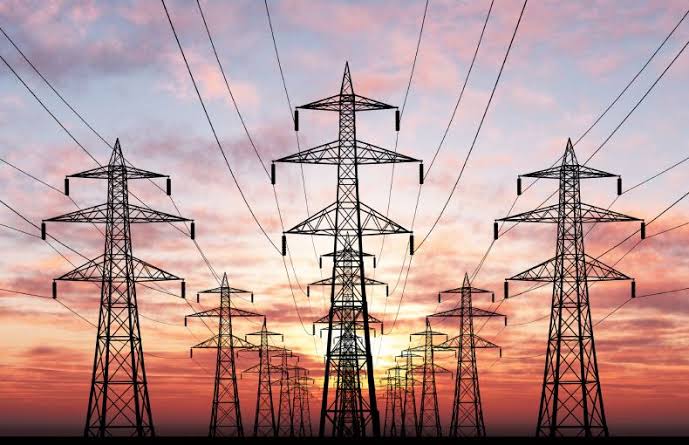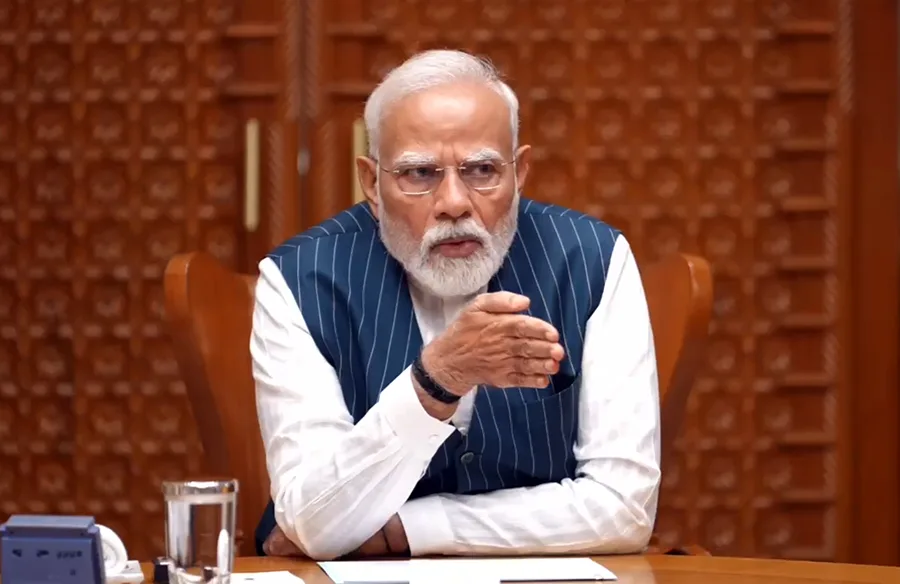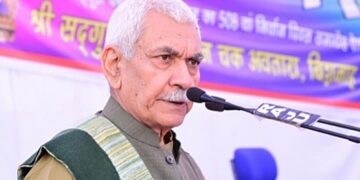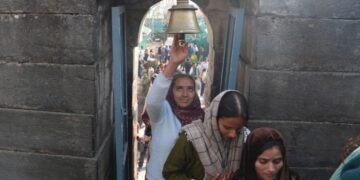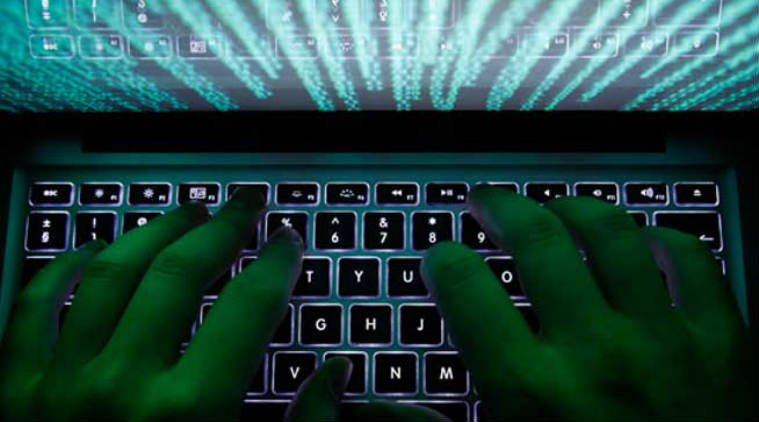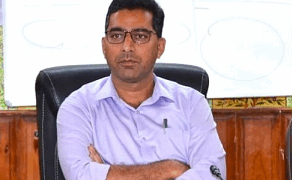Srinagar: Kashmir Power Development Corporation Limited’s proposal to impose a 20 percent surcharge on electricity consumption during peak hours has drawn sharp criticism from various political parties, including the ruling National Conference (NC).
In his post on X, NC MLA Tanvir Sadiq said that power is a necessity, not a luxury and asserted that the administration will not allow the people of Jammu and Kashmir to be burdened by such a measure.
The remark came as the KPDCL has proposed to impose a 20 percent % surcharge during peak hours. The proposal has attracted sharp criticism from multiple political parties, including Apni Party, Peoples Conference’s and Peoples Democratic Party.
In a post on X, PDP MLA Waheed ur Rehman Parra, wrote, “J&K government must do a real ground assessment before hiking electricity charges. People in posh areas may not feel it, but for ordinary Kashmiris, winter is a battle for survival.
In Kashmir, electricity is not a luxury, it is life support. At a time when families are already struggling, raising tariffs on the poor and middle class will be cruel and catastrophic. Policies that ignore human suffering have no place in a just administration.”
JK peoples Conference leader. Imran Raza Ansari reacted on X: “So just wondering, before we all get shocked with this proposed 20% peak-hour surcharge, can someone politely remind me who exactly is the Minister for Power Development Department approving these magical midnight-thought tariff ideas in Kashmir?
“Because from the way @kpdcloffice is tossing proposals into the sky, it really feels like the departments are running on autopilot while the public is being narrated a completely different bedtime story.
“And by the way, wasn’t someone loudly promising 200 units of free electricity not too long ago? Turns out Kashmir didn’t get 200 units free… instead, we’re getting 20% extra bill during the only hours when people are freezing & desperately need electricity in Kashmir.
“Trade bodies, houseboat owners, industry, households everyone is against it. But of course, why fix the system when penalising consumers is so much easier?
“Anyway, until someone explains who is actually steering the ship of J&K’s power policy, we’ll keep watching these “proposals” float around like kites with no string attached.”
In a post on X, Apni Party president Altaf Bukhari described the proposal as a “grave injustice” to the people of Kashmir.
“KPDCL’s proposal to impose a 20% surcharge on power tariffs during peak hours is a grave injustice to people who are already struggling to survive an economic crisis. Most of our population depends on tourism and horticulture—sectors that have suffered massive losses this year. Other businesses are also in decline. In such times, increasing electricity charges for mornings and evenings—when families rely on power the most in freezing cold—cannot be justified,” he wrote.
Bukhari added that the government has a moral duty to consider people’s economic hardships before enforcing such a measure.
“With harsh winter days approaching, I urge the authorities: show some mercy to people who are already burdened and suffering,” he said.
Peoples Conference state secretary Sheikh Muhammad Imran slammed the NC-led government for proposing the surcharge.
“The Government is pushing a 20 percent tariff hike exactly when people need electricity the most. And Omar Abdullah expects everyone to stay silent. What does he think will happen—families sitting in the cold and dark during peak hours while the winter is at its harshest? This is a complete betrayal of the promises he sold during the campaign,” Imran wrote.
He accused the government of reneging on its election promises.
“We were promised 200 free units. Yet the same Chief Minister, who also heads the power department, is now arguing for higher rates. The double standard is glaring. He is the JKNC vice president and the very person who championed the 200-unit pledge, and now he is the one walking away from it,” he added.
Meanwhile, the Kashmir Chamber of Commerce and Industry has strongly opposed the proposal for imposing a twenty percent surcharge on electricity consumed during peak hours, calling the move unjustified, punitive and an attempt to shift the burden of systemic failures onto the people of Kashmir.
Citing official figures, KCCI highlighted that Kashmir has one of the lowest levels of power reliability in India. According to Central Electricity Authority data for 2022, the System Average Interruption Duration Index stands at 889, while the System Average Interruption Frequency Index is 723.95. These numbers are significantly higher than the national averages of 116.12 and 171.64. Even Jammu performs better with a SAIDI of 489 and a SAIFI of 442. KCCI said these figures show that Kashmir’s power crisis is deep-rooted and long-standing.
The Chamber noted that although J&K has an installed generation capacity of 3,540.15 MW, winter generation collapses to around 900–1,000 MW. It said no new power plant has been added to the generation fleet since 2019, while output from existing plants has declined due to ageing infrastructure and delayed upgrades. As a result, the UT is forced to purchase about 2,180 MW from outside at high winter tariffs, a cost ultimately borne by honest consumers who already face unreliable service.
KCCI stressed that universal metering is yet to be completed, leaving room for large-scale power pilferage and contributing to extraordinarily high AT&C losses of nearly forty-five percent. Instead of addressing these structural gaps, the Chamber said, KPDCL is seeking to impose a surcharge that unfairly targets bill-paying consumers.
It added that consumers across Kashmir continue to suffer long, announced and unannounced power cuts, even in low-loss feeders. Industries face production setbacks and machinery damage, while households struggle during harsh winters when heating, cooking and basic survival depend on electricity. Students preparing for examinations are frequently forced to study without power, and hospitals are compelled to rely heavily on diesel generators, raising costs and compromising service quality.
KCCI reminded the Commission that under the Electricity (Rights of Consumers) Rules, 2020, residents of J&K have the legal right to compensation for service deficiencies. Rule 13 mandates an automatic compensation mechanism for outages and delays. The Chamber said it was deeply concerning that instead of fulfilling these obligations, KPDCL was seeking to introduce a surcharge despite the severely deficient supply.
KCCI said imposing such a surcharge violates principles of fairness, transparency and regulatory accountability. It urged the Commission to reject the proposal and direct KPDCL to prioritise system strengthening, loss reduction, completion of metering, structural reforms and revival of pending power projects.

